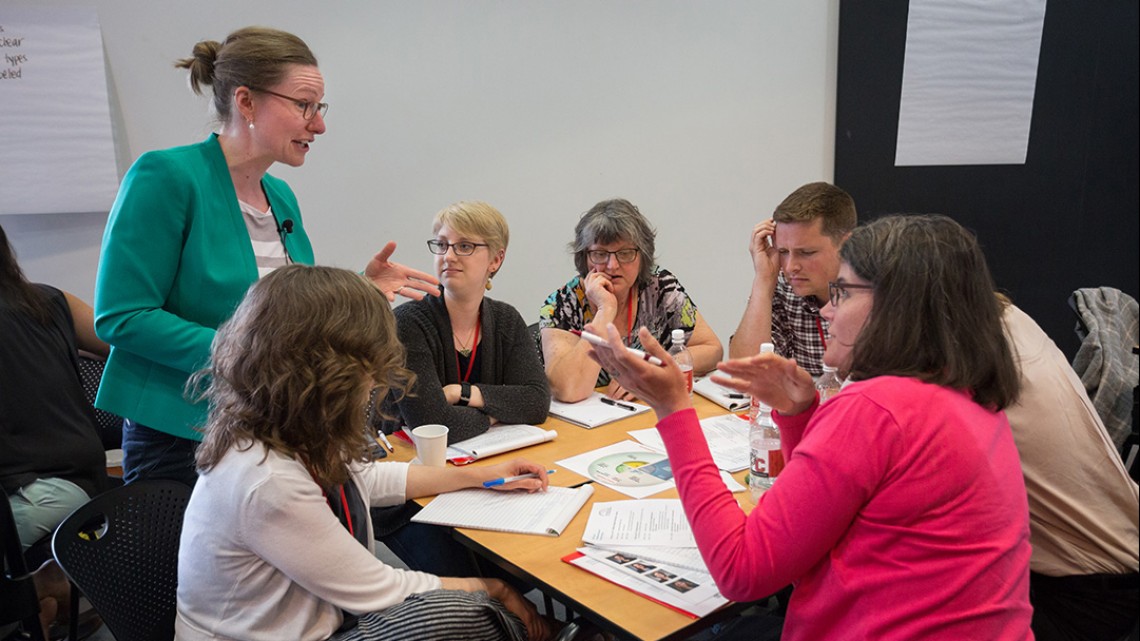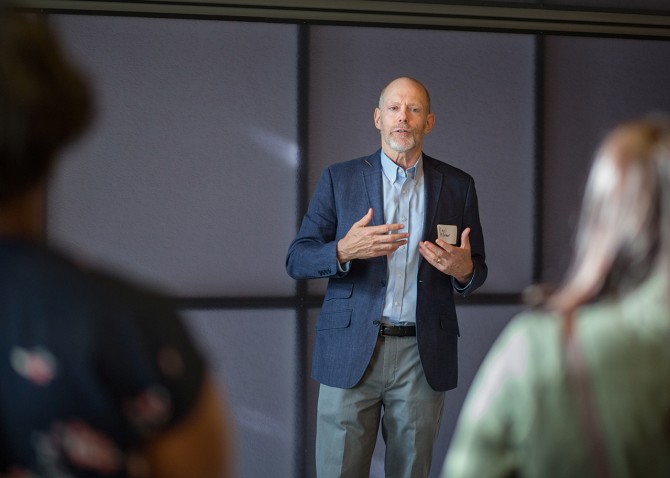
Henriette Lundgren of Grange Partnership works with a small group on data visualization.
Scholars train for research in real-world settings
By Sheri Hall
Thirty-three researchers from across the globe visited the Bronfenbrenner Center for Translational Research (BCTR) last month to learn how to conduct research through community partnerships that will inform real-world practices and decisions.
The center’s first Translational Research Summer Institute, which took place June 20-22, offered intensive training, discussion and reflection on conducting research in real-world settings such as service agencies, health care institutions and community organizations. It covered two main topics: building constructive partnerships with community organizations and using data to tell a story.
The institute builds on the BCTR’s expanded efforts to teach researchers about translational research. In the past two years, the center launched a popular workshop series, “How to Do Research in Real-World Settings” and a podcast, “Doing Translational Research.”
“We are thrilled to have found an effective forum for providing scholars interested in doing research in real-world settings with skills that come naturally to BCTR-linked faculty and staff,” said Janis Whitlock, a research scientist at BCTR and co-director of its summer institute. “This is the first of what we anticipate will be an annual institute that advances the capacity of scholars to meet real-world needs.”
Attendee Elizabeth Luth is a postdoctoral associate in behavioral geriatrics and palliative medicine at Weill Cornell Medicine. She researches end-of-life care for people with dementia and their caregivers and also how psychosocial factors influence health disparities.
“The [institute] was helpful on so many levels,” Luth said. “I particularly liked the sessions that focused on building effective partnerships, participant recruitment and sharing results with various audiences. The faculty were outstanding and, moreover, available, approachable and engaged for the duration of the institute. The opportunity to connect and network with other researchers in the field was invaluable, both the seasoned researchers from Cornell and the more junior persons, like myself.”
Luth said her biggest lesson from the conference was the importance of creating an authentic connection with collaborators and research participants. “It keeps why we do this type of research – to make a difference in the real world – front and center in our work. If I can forge and sustain that type of connection, the rest will fall into place.”
Sheri Hall is a freelance writer in Ithaca, New York
Media Contact
Get Cornell news delivered right to your inbox.
Subscribe

